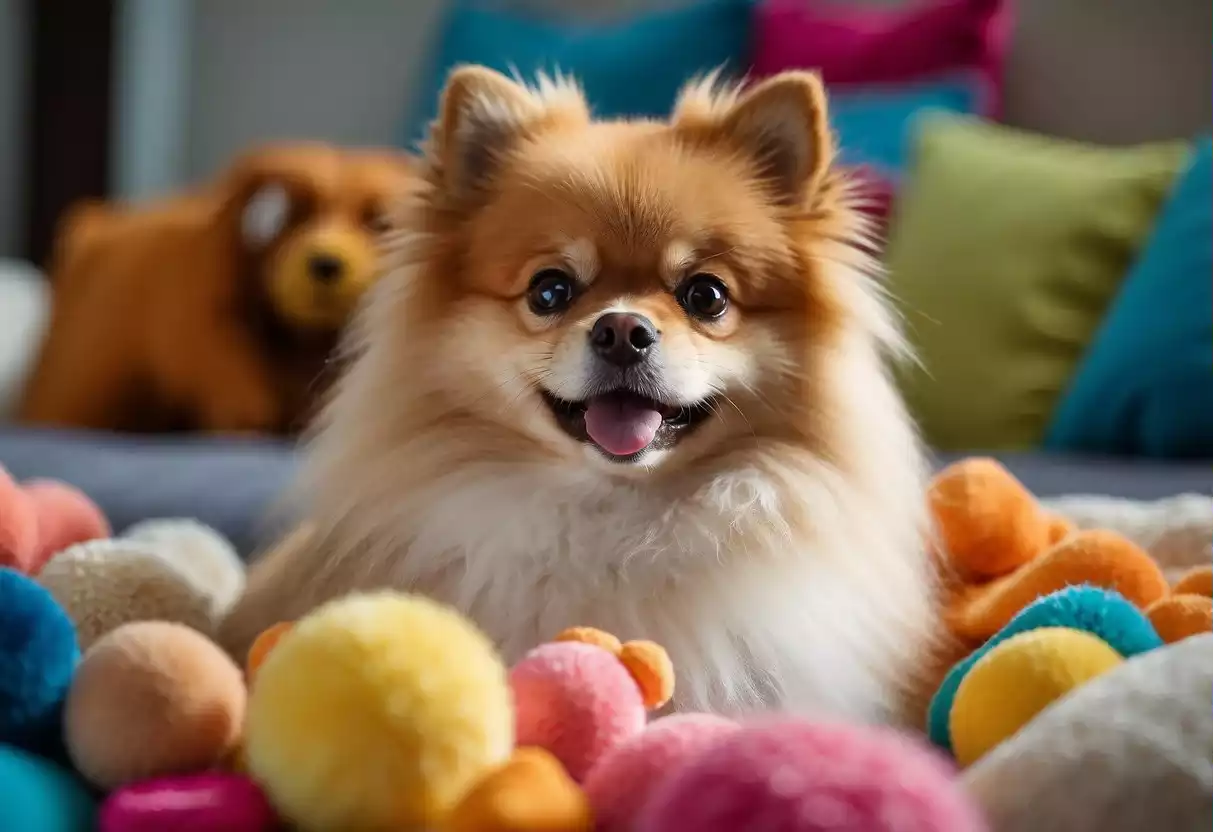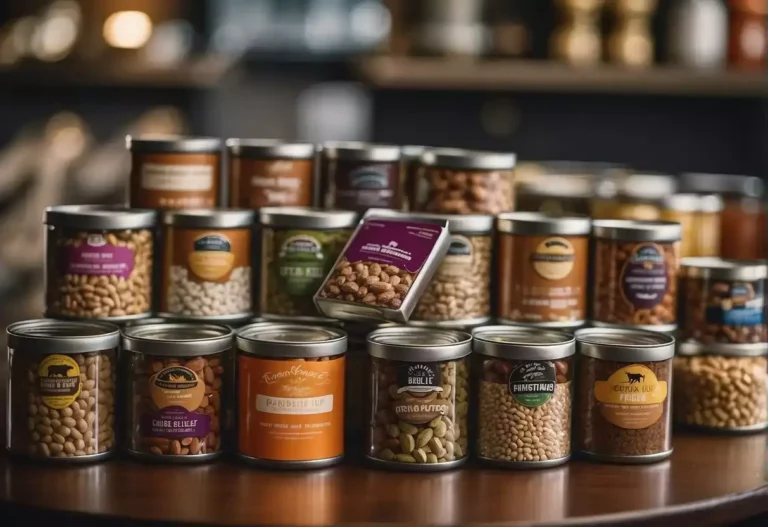Introduction:
Hello and welcome to “The Magnificent Pomeranian: Everything You Need to Know!” In this article, I will be discussing all the important information about the Pomeranian Lulu, a small dog breed from Germany that is famous for its lush coat and affectionate personality.
History and Popularity:
The Pomeranian Lulu was originally a working dog, but it became popular with the nobility in the 18th century. After a period of decline, it was revived by dedicated breeders. Today, the Pomeranian Lulu is a beloved companion dog and is one of the most popular toy dog breeds in the world.
Physical Condition and Care:
To keep your Pomeranian Lulu healthy, it requires daily brushing of its dense coat, nail care, and dental hygiene. It also needs daily exercise to maintain its physical health. In the following sections, I will discuss the personality and temperament of the Pomeranian Lulu, its features and appearance, health and well-being, and training tips.
History and Popularity
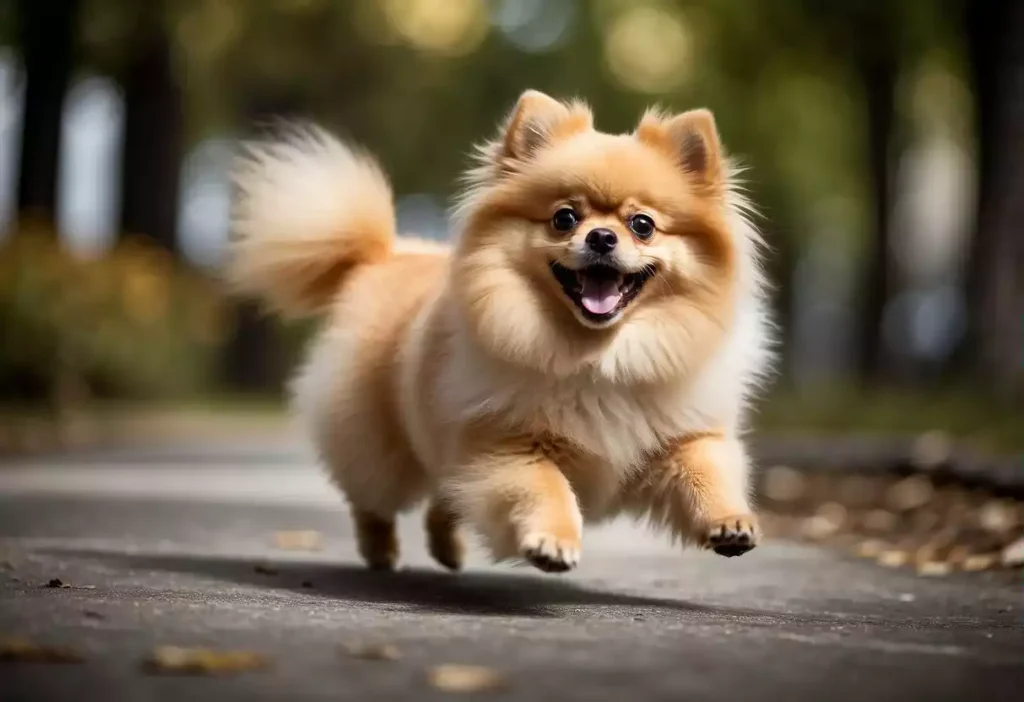
Nobility and Revival
I love learning about the history of dog breeds, and the Pomeranian Lulu is no exception. Originally, these dogs were bred as working dogs in Germany. However, they became popular with the nobility in the 18th century, especially with Queen Victoria who was a big fan of the breed. She even helped to establish a breeding program that resulted in smaller Pomeranians with fluffier coats.
Despite their popularity, the breed experienced a decline in the early 1900s. However, dedicated breeders worked hard to revive the breed, and thankfully, they were successful. Today, the Pomeranian remains a beloved breed around the world.
It’s fascinating to see how the Pomeranian’s popularity has evolved over time, from a working dog to a beloved companion of the nobility and eventually to a popular breed among dog lovers everywhere. I’m grateful for the dedicated breeders who worked hard to keep this magnificent breed alive and thriving.
Physical Condition and Care
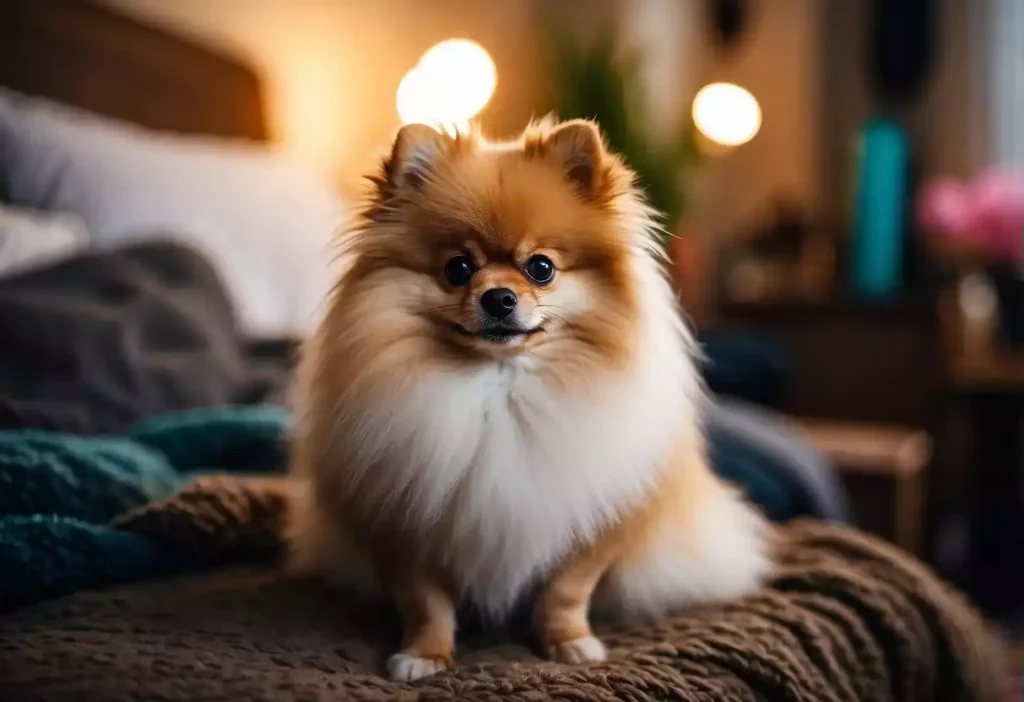
As an owner of a Pomeranian Lulu, I know firsthand that this breed requires daily maintenance to keep their coat healthy and shiny. Here are some tips on how to keep your Pomeranian looking and feeling their best.
Grooming Needs
Pomeranians have a thick double coat that requires daily brushing to prevent matting and tangling. I recommend using a slicker brush and a metal comb to remove any loose fur and debris. Additionally, regular bathing and trimming of the fur around the anus is necessary for cleanliness.
Nail care is also important for Pomeranians. Long nails can cause discomfort and even affect their gait. I suggest trimming their nails every two weeks or as needed. If you are not comfortable doing this yourself, a professional groomer can assist you.
Dental hygiene is crucial for Pomeranians, as they are prone to dental disease. Daily brushing with a dog-specific toothpaste and regular dental check-ups with a veterinarian can help prevent dental problems.
Exercise Requirements
Despite their small size, Pomeranians have a lot of energy and require daily exercise to maintain their health. I recommend taking them for a walk or playing fetch in a fenced yard for at least 30 minutes a day. Mental stimulation, such as puzzle toys and obedience training, can also help keep them mentally sharp and happy.
It is important to note that Pomeranians are not outdoor dogs and should not be left outside for extended periods of time. They are sensitive to extreme temperatures and can become overheated or cold very quickly.
Personality and Temperament
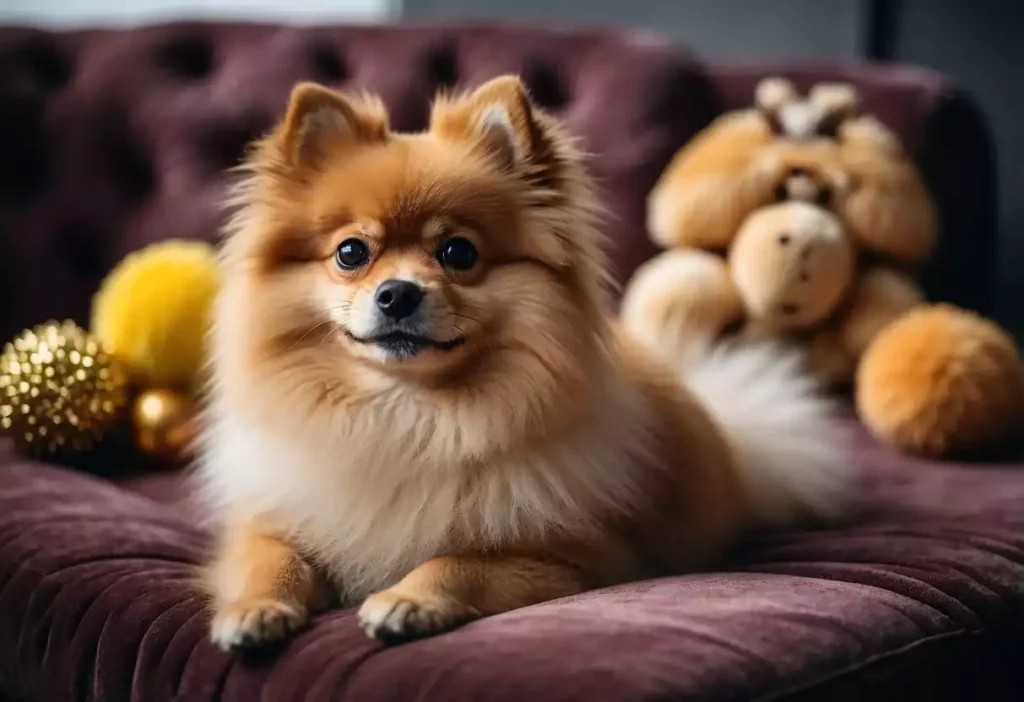
As a Pomeranian owner, I can attest to the fact that these dogs have a friendly and affectionate personality. They are loyal and loving towards their owners, and they make great companions.
Companion Qualities
Pomeranians are known for their playful and energetic nature, and they are always up for a good game of fetch or tug-of-war. They are also quite intelligent and have a high level of character for their size. They are bold and confident, which makes them great watchdogs despite their small size.
Socialization and Training
Socialization and training are essential for Pomeranians to avoid excessive barking and territorial behavior. They can be prone to separation anxiety, so it is important to start socialization and training from an early age. Positive reinforcement training methods work best with Pomeranians, as they respond well to praise and treats.
Features and Appearance
As a proud owner of a Pomeranian Lulu, I can attest to the distinctive traits that make this breed so unique and adorable. Here are some of the features and appearance of this magnificent dog.
Distinctive Traits
One of the most striking features of the Pomeranian Lulu is its coat. This breed has a double coat consisting of a soft, thick undercoat and a longer, straight topcoat that stands off the body. The coat comes in a variety of colors, including white, black, orange, cream, and sable. Regular grooming is essential to keep the coat healthy and shiny, and to prevent matting.
Another distinctive trait of the Pomeranian is its wedge-shaped head with a short, blunt muzzle and small, pointed ears that stand erect. The eyes are dark and almond-shaped, giving the dog an intelligent and alert expression. The body is compact and well-proportioned, with a feathered tail that curls over the back.
Despite their small size, Pomeranians are sturdy and muscular, with a confident and lively gait. They are often compared to foxes because of their fluffy coat and foxy face.
Health and Well-being
As a Pomeranian owner, I know that ensuring my dog’s health and well-being is of utmost importance. Here are some key things to keep in mind when it comes to your Pomeranian’s health:
Common Health Issues

While Pomeranians are generally healthy dogs, they can be prone to certain health issues. One common issue is patellar luxation, which is a condition where the kneecap dislocates from its normal position. Dental disease is also a concern, as Pomeranians can be prone to tooth decay and gum disease. Regular dental check-ups and cleanings are important to prevent these issues.
Diet and Veterinary Care
Proper diet and veterinary care are crucial to keeping your Pomeranian healthy. A balanced diet that meets your dog’s nutritional needs is important, and your veterinarian can provide recommendations for the best food to feed your Pomeranian. Regular veterinary check-ups are also important to catch any health issues early on.
In addition to regular check-ups, it’s important to keep up with your Pomeranian’s vaccinations and preventative care, such as flea and tick prevention. Regular grooming, including brushing your Pomeranian’s coat and trimming their nails, is also important for their overall health and well-being.
Training Tips
Training a Pomeranian can be a rewarding experience for both you and your furry friend. Positive reinforcement is the key to successful training. Here are some training tips that I have found to be effective:
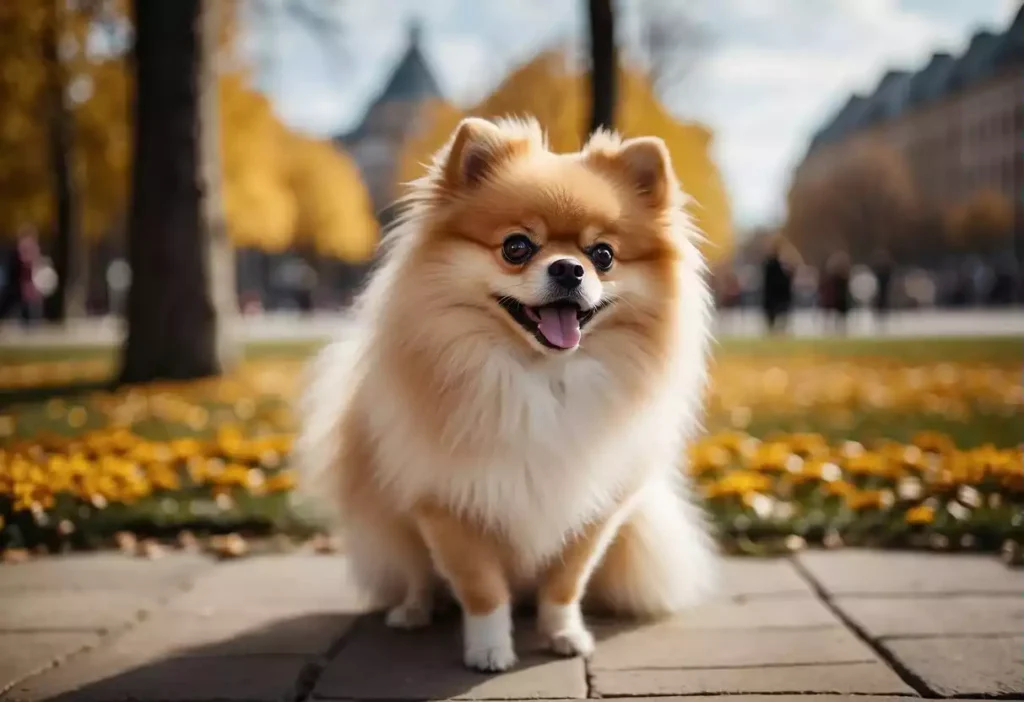
Positive Reinforcement
Positive reinforcement is a training technique that involves rewarding your Pomeranian for good behavior. This can be done through treats, praise, or playtime. When your Pomeranian performs a desired behavior, such as sitting or staying, reward them immediately with a treat and praise. This will reinforce the behavior and encourage them to repeat it in the future.
It is important to avoid punishment or negative reinforcement when training your Pomeranian. This can lead to fear and anxiety, which can cause behavioral problems. Instead, focus on positive reinforcement and be patient. Training takes time and consistency.
In addition to positive reinforcement, socialization is also important for a well-behaved Pomeranian. Expose your Pomeranian to different people, animals, and environments from a young age. This will help them feel comfortable and confident in various situations.

